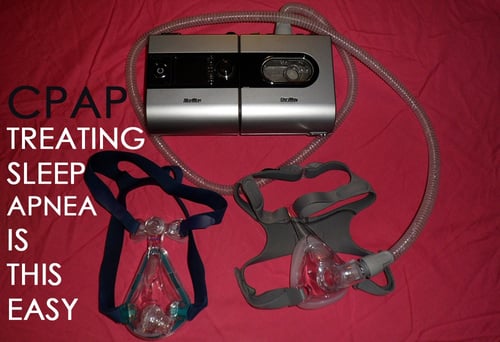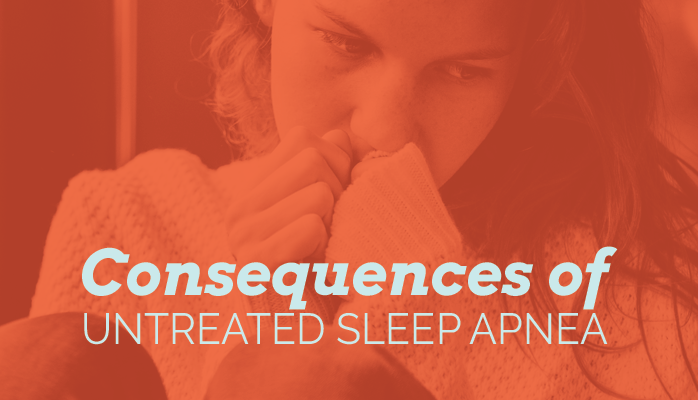Sleep apnea is a group of sleeping breathing-related sleep disorders that cause low levels of oxygen to circulate through the body at night. There are three types of sleep apnea:
- Obstructive or obstructive sleep apnea
- Non-obstructive or central sleep apnea
- Mixed: called complex sleep apnea.
Obstructive sleep apnea is caused by obstruction from the upper airway becoming blocked during sleep. This blockage greatly reduces or completely stops airflow, and is usually accompanied by loud snoring.
Central sleep apnea is caused when the brain does not send signals needed to breathe during sleep. This type of sleep apnea is not accompanied by snoring, does not involve obstruction, and is far less common than OSA.
Complex sleep apnea is accompanied by characteristics of both central and obstructive sleep apnea.
In all cases, the common consequence is the inability to get restful sleep.
Health Consequences of Untreated Obstructive Sleep Apnea
There is strong evidence that untreated obstructive sleep apnea can have a significant impact on your health. This is why it is so important for individuals with OSA to comply with CPAP therapy, even though it may not be as comfortable.
With untreated sleep apnea, a person may wake up many times per night (i.e. between 5 to 30 times) to begin breathing again (though they won’t remember waking up). The result is severely reduced REM sleep (the phase that provides deep, restful sleep). The long-term consequences are:
Impaired quality of life
The lack of sleep from OSA leaves individuals feeling very tired all the time. Not only are individuals tired, but they are irritable, prone to mood swings/depression, and cause an overall drop in daily functions.
Hypertension
OSA is a significant risk factor for the development of hypertension. How significant? Approximately 50% of people with sleep apnea have hypertension. Treatment of OSA may result in better management of hypertension, and can even resolve it [1]
Diabetes
Obesity is a major risk factor for both type 2 diabetes and OSA. As such, it comes as no surprise that these two conditions often co-exist. While it’s a little inaccurate to say that diabetes can be a “consequence” of OSA, it’s extremely important to point them out as a risk factor because of the prevalence of their comorbidity [2].
Heart Disease
People with cardiovascular problems have a high prevalence of sleep apnea [National Sleep Foundation]. While it’s not clear if sleep apnea causes heart disease, it is clear that people with untreated OSA are significantly more at risk for developing hypertension which can lead to heart disease.
This is because the lack of breathing causes a depression in overall oxygen levels which causes the brain to constrict all the vessels in the body to increase oxygen flow to the heart and brain. This increase in pressure in the vessels can persist into the day as well. The result of long-term constriction is increased blood pressure that can put strain on the heart and kidneys, among other health consequences.
How to Treat Obstructive Sleep Apnea

Treating obstructive sleep apnea first begins with a diagnosis. Sleep specialists monitor you during a sleep study, where they can observe:
- If you stop breathing during sleep
- How often you stop breathing during sleep
- Whether or not these symptoms are accompanied by other symptoms such as:
- Snoring
- Lack of REM sleep
- Causes for obstructive sleep apnea.
Obstructive sleep apnea is generally treated with CPAP therapy, which is extremely effective at allowing persons with sleep apnea to get restful, non-obstructed sleep. Additional regimens may also be recommended in addition to CPAP therapy.
If you are concerned that you or someone you know may have a sleeping disorder, then please click the blue button below to get a sleep medicine consultation and speak with one of our sleep health professionals.
Citations
- Budhiraja R, Sharief I, Quan SF. Sleep disordered breathing and hypertension. J Clin Sleep Med 2005;1:401-4
- Suzanne Boyer, MD, Vishesh Kapur, MD, MPH. Clinical Diabetes 2002 Jul; 20(3): 126-132.


